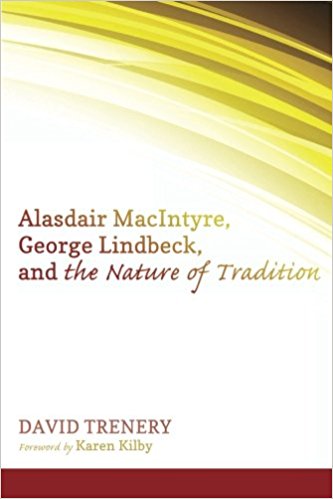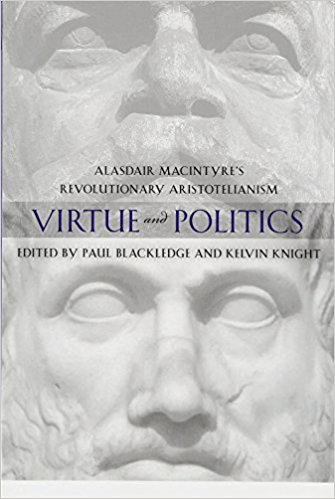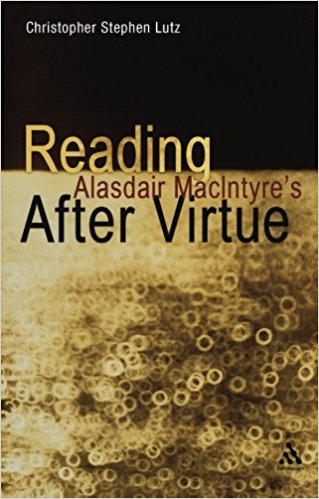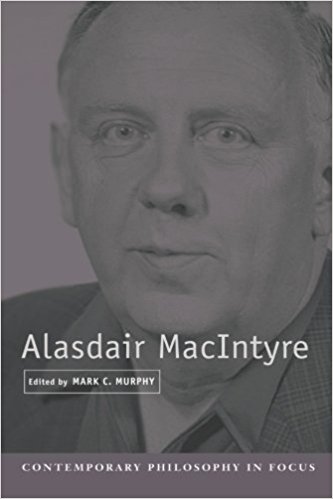
|
Alasdair MacIntyre, Charles Taylor, and the Demise of Naturalism: Reunifying Political Theory and Social Science
University of Notre Dame Press; 1 edition (October 15, 2016). 154 pages. Today the ethical and normative concerns of everyday citizens are all too often sidelined from the study of political and social issues, driven out by an effort to create a more “scientific” study. This book offers a way for social scientists and political theorists to reintegrate the empirical and the normative, proposing a way out of the scientism that clouds our age. In Alasdair MacIntyre, Charles Taylor, and the Demise of Naturalism: Reunifying Political Theory and Social Science, Jason Blakely argues that the resources for overcoming this divide are found in the respective intellectual developments of Charles Taylor and Alasdair MacIntyre. Blakely examines their often parallel intellectual journeys, which led them to critically engage the British New Left, analytic philosophy, phenomenology, continental hermeneutics, and modern social science. Although MacIntyre and Taylor are not sui generis, Blakely claims they each present a new, revived humanism, one that insists on the creative agency of the human person against reductive, instrumental, technocratic, and scientistic ways of thinking. The recovery of certain key themes in these philosophers’ works generates a new political philosophy with which to face certain unprecedented problems of our age. Taylor’s and MacIntyre’s philosophies give social scientists working in all disciplines (from economics and sociology to political science and psychology) an alternative theoretical framework for conducting research.
|

|
Alasdair MacIntyre, George Lindbeck, and the Nature of Tradition
by David Trenery (Author), Karen Kilby (Foreword). Pickwick Publications (November 6, 2014). 288 pages. What should we believe, and why should we believe it? This book addresses these questions through a critical exposition of the work of the contemporary philosopher Alasdair MacIntyre and of the theologian George Lindbeck, the father of postliberal theology. The book argues that MacIntyre's philosophical development can be seen as a response to the question of how belief in a comprehensive metaphysical system can be justified. Such a system provides its believers with an account of the nature of the universe and human nature, and a basis for their ethical reasoning and action. The book draws on Lindbeck's cultural-linguistic account of religion to argue that such a system is primarily a way of interpreting the world and the place of humanity within it, rather than a speculative theory. The justification of belief in such systems can be understood in terms of MacIntyre's account of tradition-constituted rationality, provided that this notion of rationality is made more specific by the incorporation of elements of Lindbeck's theology. Equally, the book argues that Lindbeck's theology can be strengthened by the incorporation of elements drawn from MacIntyre's work. This book will be of value to students of philosophy and theology and to the general reader who is interested in the question of the grounds of belief.
|

|
Virtue and Politics: Alasdair MacIntyre's Revolutionary Aristotelianism
by by Paul Blackledge (Editor), Kelvin Knight (Editor). University of Notre Dame Press; 1st Edition edition (June 15, 2011). 367 pages. The essays in this collection explore the implications of Alasdair MacIntyre's critique of liberalism, capitalism, and the modern state, his early Marxism, and the complex influences of Marxist ideas on his thought. A central idea is that MacIntyre's political and social theory is a form of revolutionary--not reactionary--Aristotelianism. The contributors aim, in varying degrees, both to engage with the theoretical issues of MacIntyre's critique and to extend and deepen his insights.
The book features a new introductory essay by MacIntyre, "How Aristotelianism Can Become Revolutionary," and ends with an essay in which MacIntyre comments on the other authors' contributions. It also includes Kelvin Knight's 1996 essay, "Revolutionary Aristotelianism," which first challenged conservative appropriations of MacIntyre's critique of liberalism by reinterpreting his Aristotelianism through the lens of his earlier engagement with Marx. "This is an excellent collection. Its particular strength is its sustained focus on Alasdair MacIntyre's political thought, in particular MacIntyre's complicated relation and indebtedness to Marxism. In their introduction, the co-editors say that the reception of MacIntyre within political philosophy has largely been reductive and one-sided, namely, that he is simply viewed as a conservative communitarian. In focusing on MacIntyre's radical heritage, this volume helps correct that simplistic misperception. |

|
Reading Alasdair MacIntyre's After Virtue
by Christopher Stephen Lutz Bloomsbury Academic; 1 edition (April 5, 2012). 232 pages. After Virtue is a watershed in MacIntyre's career. It follows his emergence from Marxism, but draws on Marxist sources and arguments. It precedes his move to Thomism, but already draws on Augustine and Aquinas. Because of its watershed nature, it has gained a wide readership in various fields but it treats a variety of issues in ways that are unfamiliar either to Marxists schooled in the social sciences or to Thomists schooled in medieval metaphysics.
Reading Alasdair MacIntyre's After Virtue provides a commentary that will be accessible to students, valuable to scholars, and useful to teachers. Students will find help to navigate the two main arguments of After Virtue, to understand its interpretation of history, and to engage its proposal for a form of ethics and politics that returns to the tradition of the virtues. Scholars will find the book useful as a general guide to MacIntyre's ethics. Teachers will find a book that can help to direct their students' reading and keep classroom discussions focused on the book's central concerns. |

|
Alasdair MacIntyre (Contemporary Philosophy in Focus)
by Mark C. Murphy. Cambridge University Press; First edition (June 30, 2003). 238 pages. Alasdair MacIntyre's writings on ethics, political philosophy, philosophy of religion, philosophy of the social sciences and the history of philosophy have established him as one of the philosophical giants of the last fifty years. His best-known book, After Virtue (1981), spurred the profound revival of virtue ethics. Moreover, MacIntyre, unlike so many of his contemporaries, has exerted a deep influence beyond the bounds of academic philosophy. This volume focuses on the major themes of MacIntyre's work with critical expositions of MacIntyre's views on the history of philosophy, the role of tradition in philosophical inquiry, the philosophy of the social sciences, moral philosophy, political theory, and his critique of the assumptions and institutions of modernity. Written by a distinguished roster of philosophers, this volume will have a wide appeal outside philosophy to students in the social sciences, law, theology, and political theory. Mark C. Murphy is Associate Professor of Philosophy at Georgetown University. He is author of Natural Law and Practical Rationality (Cambridge, 2001) and An Essay on Divine Authority (Cornell, 2002), as well as of a number of articles on natural law theory, political obligation, and Hobbes' moral, political, and legal philosophy. His papers have appeared in Ethics, Philosophy and Public Affairs, Nous, Faith and Philosophy, Law and Philosophy, American Philosophical Quarterly, the Thomist, and elsewhere.
|
Studies of Alasdair MacIntyre
Subscribe to:
Comments (Atom)
